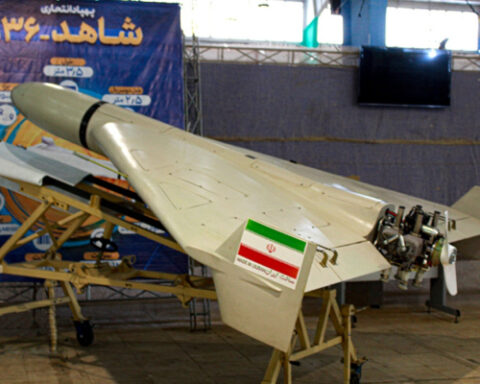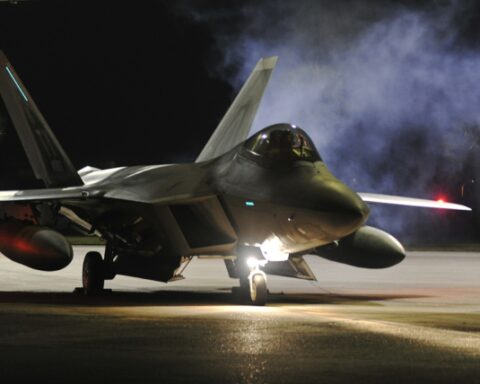The Trump administration has now reportedly redirected a critical shipment of antidrone rockets originally bound for Ukraine, choosing instead to bolster U.S. forces stationed in the Middle East.
The move reflects a significant shift in American defense priorities, as the White House contends with growing threats to U.S. personnel from Iranian-backed militias in the region.
The technology in question—proximity-fuzed warheads used in the Advanced Precision Kill Weapon System (APKWS)—has been a vital tool for Ukrainian forces in intercepting Russian drones.
U.S. officials informed Congress last week that the transfer would be delayed indefinitely, citing an “urgent operational need” in the Middle East.
Defense Secretary Pete Hegseth approved the redirection, which he characterized as a temporary reallocation in response to escalating drone attacks on U.S. positions across Syria, Iraq, and the Red Sea.
Military planners reportedly believe the current threat environment requires immediate counter-drone capabilities, even at the cost of limiting Ukraine’s access to the system.
The decision has alarmed congressional leaders, particularly lawmakers who have pushed for sustained support for Ukraine’s military.
Critics argue that this move risks weakening Kyiv’s air defense at a critical moment, as Russia intensifies its use of drones to target infrastructure and frontline positions.
Administration officials have offered reassurances that additional shipments to Ukraine are expected later in the year and that efforts are underway to ramp up production of the fuzed rockets.
Still, the redirection marks a symbolic departure from the blanket support Washington extended during the early years of the war.
It also follows a pattern of recent policy decisions that suggest the United States is reevaluating its role in the conflict.
President Trump has repeatedly urged European allies to “step up” their contributions to Ukraine and has publicly questioned the long-term strategic value of continued American aid.
In March, he froze future weapons transfers and declined to request further Ukraine funding from Congress.
During a recent meeting with German Chancellor Friedrich Merz, Trump remarked that it might be time to “let them fight it out,” a comment widely interpreted as signaling a willingness to let the conflict drag on without intensified U.S. involvement.
For European leaders, the administration’s pivot has added pressure to take on a larger share of Ukraine’s defense burden.
As U.S. priorities shift toward the Indo-Pacific and countering Iranian aggression, Ukraine’s battlefield resilience may increasingly depend on Europe’s response.
With fighting intensifying and strategic clarity in short supply, allies and adversaries alike are watching closely to see how far America’s pivot away from Ukraine will go.
[READ MORE: Iran Rejects Trump’s Proposed Nuclear Deal]








